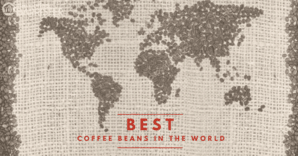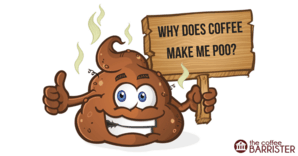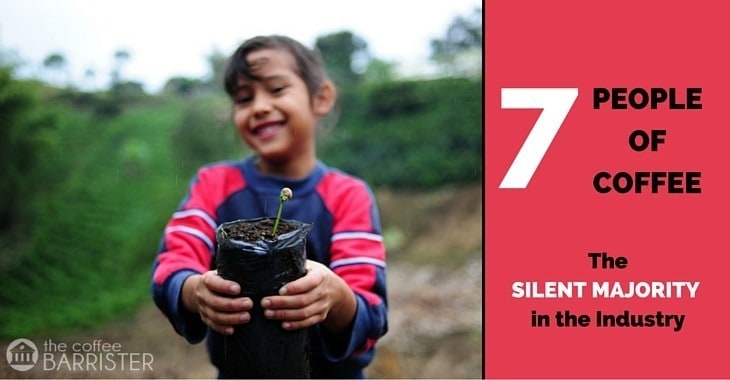
When you look at your delicious cup of coffee, did you know the beans came from a far-away land and went through several hardships?
Coffee beans are sourced from many different corners of the world, it changes hands at least 7 times down the supply chain, before actually reaching your cup.
Who are these people? How are they involved? This article will go through everyone involved in the coffee supply chain. Read on to find out more…
1. Producers
There are several types of producers in the coffee industry, ranging from small individual producers all the way to huge coffee plantations. Their earnings vary drastically here – some are killing it whilst others are barely scraping by.
For example, here is an example of both co-existing in a small town of Guatemala.
Don Miguel - Small Producer
Don Miguel is a small producer who owns about 20 cuerdas (19.5 acres) of land. He produces coffee beans by growing them on his land together with his wife, children, and workhorse. During rainier seasons, he’ll occasionally hire extra help in removing weed together.
His house is built with cement blocks and tin roofing, and includes a spot in the patio for his workhorse.
Don Miguel is part of a coffee cooperative and can export his coffee directly to markets in the US. This is an unusual case as most farmers at his scale will only manage to sell to coffee ‘coyotes’ for pennies (I’ll talk more of them in the next section). Nonetheless, Don Miguel’s share in the coffee business is still tiny compared to its neighboring coffee plantation.
La Azotea - Coffee Plantation
La Azotea is a nearby coffee plantation that buys coffee fruits from surrounding smaller producers. The company exports large amount of green coffee every year and even sell their own roast online, mainly to the US markets.
La Azotea also has its own coffee museum and exhibitions, which hosts around 3,000 tours per month. According to sources (I live in Guatemala), the family who owns the business is very wealth and travel around the world frequently – for both business and leisure.
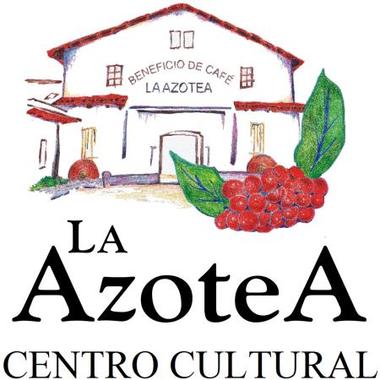
2. Middlemen Galore
I bet you didn’t know there are multiple layers of middlemen involved in the industry. The coffee industry is formed by a complicated supply chain where every middleman, including their friends and family, are trying to make a cut in the field.
This complicated chain is formed because of logistic difficulties and accessibility issues into markets of different countries. In many developing countries, it’s very difficult for people to get hold of licenses to import and export goods, especially within the capital or port cities. In turn, this produces lots of opportunity for transport businesses and the legal know-hows.
The 'Coyotes' - Small Middlemen Exporters
In the industry, small middlemen exporters are often referred as coffee ‘coyotes’. This is where people collect coffee fruits by either driving around in a pickup truck or setup collection businesses in their homes. Typically, they buy coffee fruit from small producers at an extremely cheap price and profit by selling them to larger coffee plantations.
Coffee Mills
Coffee mills are small producers who’ve acquired the necessary knowledge and technology to process their own coffee. Normally, coffee mills process their coffee beans to what’s known as ‘parchment coffee’ before selling them.
There are 2 reasons behind this. Firstly, a paper-thin shell is formed during the drying stage. This outer layer protects the beans from dust and humidity when they’re sold on to other parties. Secondly, hulling coffee (processing coffee’s last stage) normally requires motorized machine that’s beyond the reach of typical small producers.
Hulling is the removal of the paper-like outer layer that is still attached to the bean after drying.
Trading License Holders
There are many coffee farmers who don’t have access to a trading license, and occasionally, not even coffee cooperatives have this luxury. Therefore, this creates an additional layer of trading where license owners will let others piggyback his exports for a small fee.
3. Exporters
Technically exporters are just another form of middleman. However, I think they should be treated as a separate group because of the important and compulsory role they place in the coffee supply chain.
Whilst other middlemen could be avoided if the producer is savvy or are a part of a cooperative…exporters are non-negotiable. Exporters play an important role here because they prepare all the necessary paperwork, documentations, shipping container, and port-side arrangements – most of which are impossible to bypass…
4. Importers
The coffee industry is huge! According to SCAA, the US coffee market alone is valued at $48 billion in 2015. With so many bags of coffee being imported and exported every day, it’s important to keep track of them and everything organized.
You might start wondering, how on earth does your local coffee roaster claim that their beans are single origin from a Tanzanian farm? Well that’s a good question.
When coffee is exported, someone have to pick them up from the receiving end. Other than exporters filling in the required documentations, importers normally receive and organize them in large quantities – majority even offer warehousing services to make things even simpler for those down the supply chain.
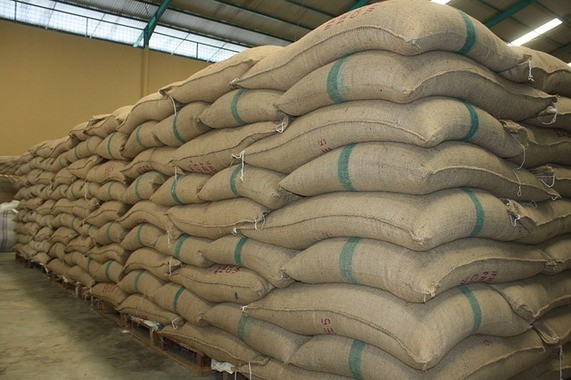
5. Coffee Roasters
I think we’re reaching a stage which people are more familiar with – coffee roasters. Roasters are people who roast coffee beans, adding a special touch that transforms coffee beans from useless green beans to gifts from god. Roasting coffee is usually the last or second last stage before it actually reaches you.
Coffee roasters normally sell roasted coffee beans to coffee shops, cafes or supermarkets. However, some roasters also run their own shop and sell roasted beans directly to consumers too.
6. Coffee Shops, Restaurants & Supermarkets
The last middlemen involved in the coffee supply chain are people who deal directly with you, the consumers. These are your local coffee shops, restaurants and supermarkets. They’re mainly responsible for distributing coffee within their target markets and if it’s in a café, they’re responsible for brewing a cup of criminally good coffee for you too!
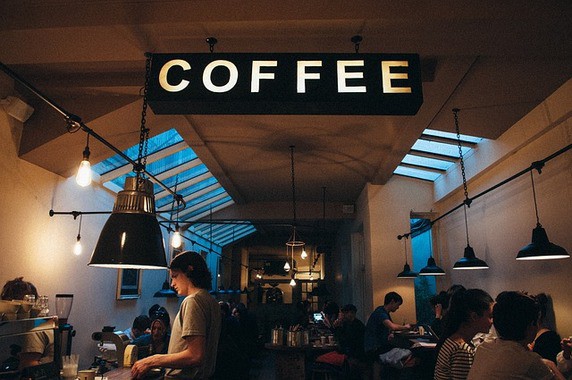
7. Y.O.U. - The Consumers
If you’re unaware of the human-side involved in the industry, then YOU are the final group in the silent majority. Hopefully, this article helped you appreciate that the $10 coffee bag contributes to a long list of people involved in getting them to you.

Food for Thought [CONCLUSION]
Overall, the further up you are in the coffee supply chain, the more money you’re likely to make. As such, imagine how much a small producer earns down at the bottom? They are most likely living in third-world countries with limited option, unlike first-world coffee roasters, who are protected by stricter regulations and minimum wages.
Through awareness and understanding those at the production end, perhaps a fairer scheme can be achieved – read my article on fair trade.
What are your thoughts? Who grows your coffee? Let me know down below.


